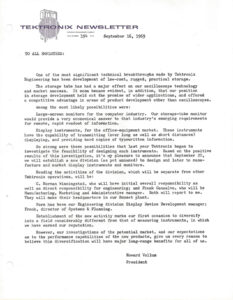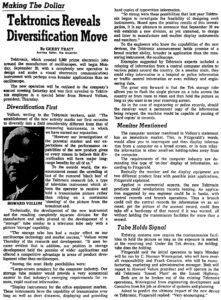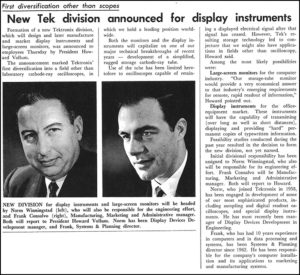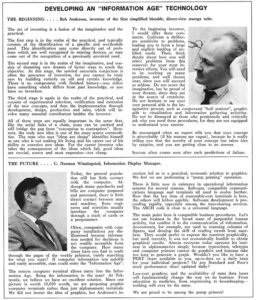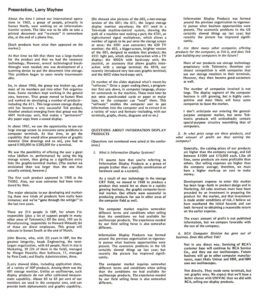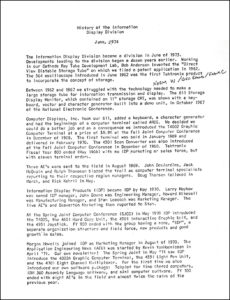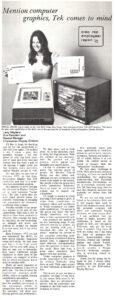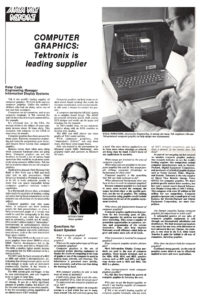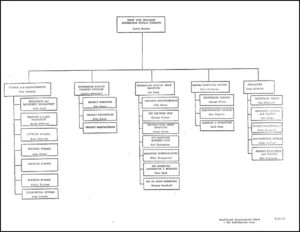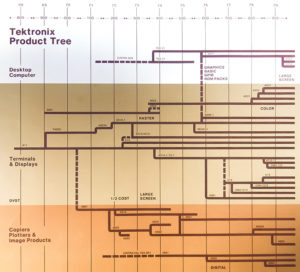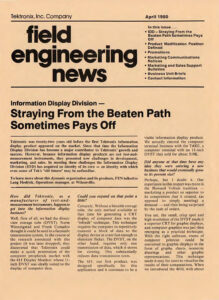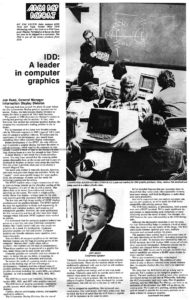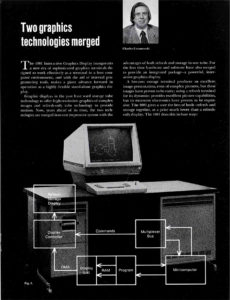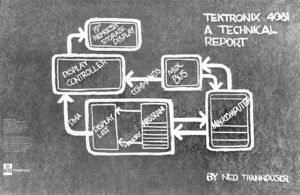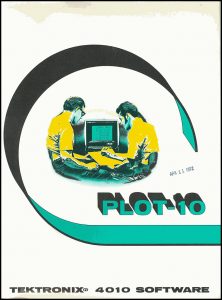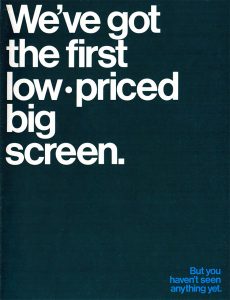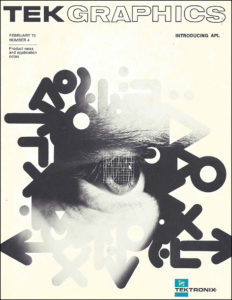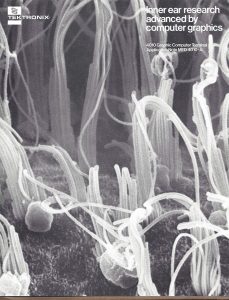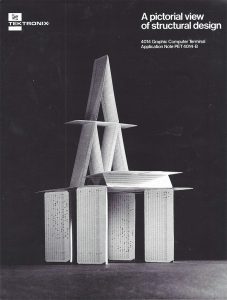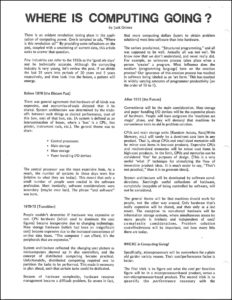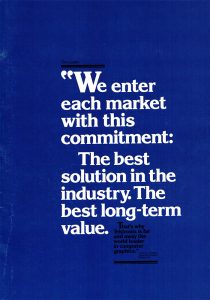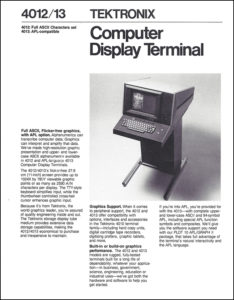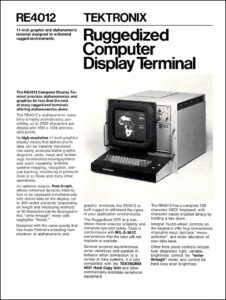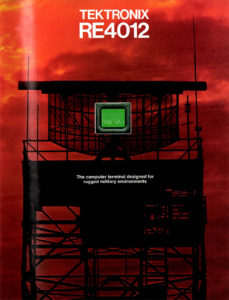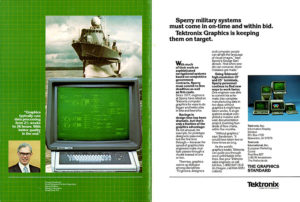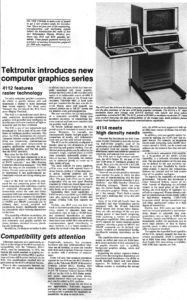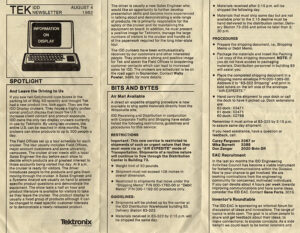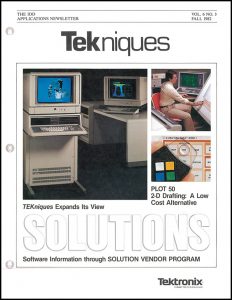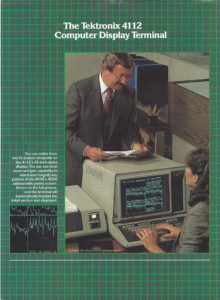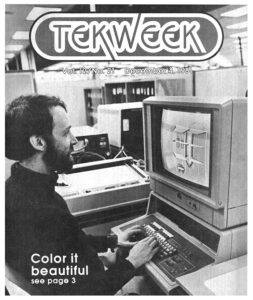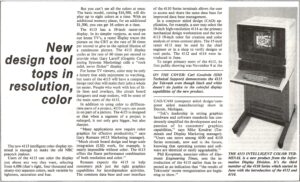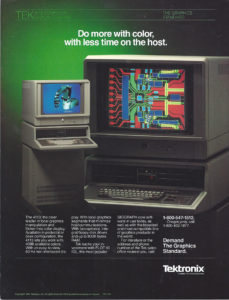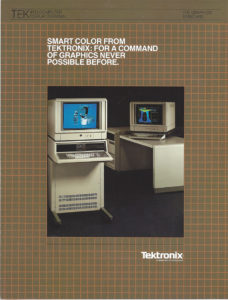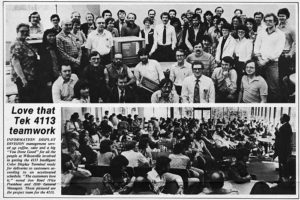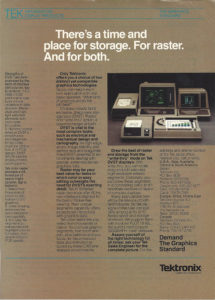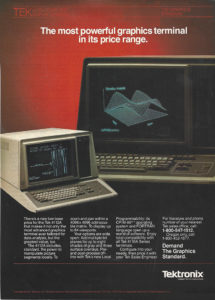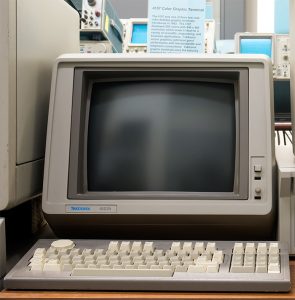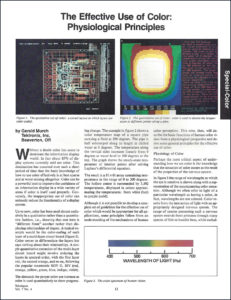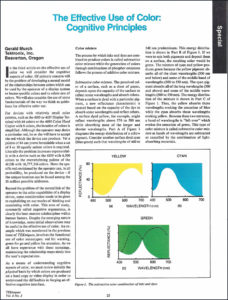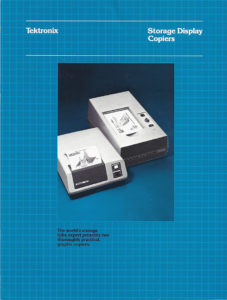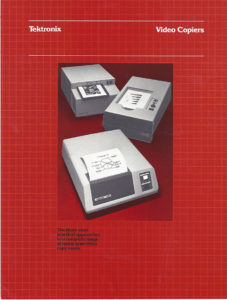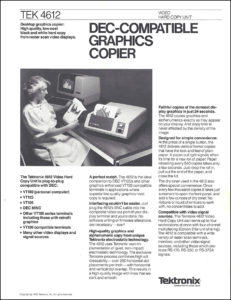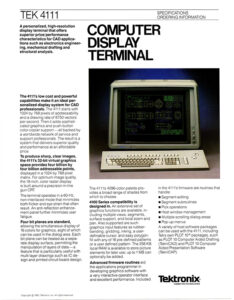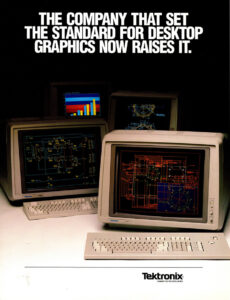The development of the storage CRT was an important invention with many potential opportunities. The Display Devices Development (DDD) organization headed by Norm Winningstad focused on storage CRT research and development. This April 30, 1964 DDD organization document lists the resources assigned to storage CRT development. Click on the image to view the PDF.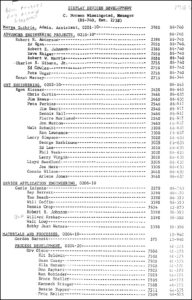
This September 16, 1965 Tektronix Newsletter from Howard Vollum talks about the importance of the storage tube and the announcement of an unnamed division to be headed up by Norm Winningstad. This was to be Tektronix first non-oscilloscope group. Click on the image to view the PDF.
This September 17, 1965 Oregonian article also describes the diversification effort. Notice the misspelling of Tektronix in the headline.
Product development engineers were added to augment the DDD organization. Sales continued to be handled by the Field Engineers. The first products were large screen graphic displays but soon evolved into graphic terminals which dominated the industry. This September 24, 1965 TekWeek announces the new division but still does not name it. Click on the image to view the PDF.
The unnamed division soon became known as Information Display Division and this June 1969 TekScope features an article by Bob Anderson and Norm Winningstad on the future of display devices. Click on the image to view the PDF.
Larry Mayhew managed the group after Norm Winningstad departed in 1970. At that time the group was known as Information Display Products (IDP). This February 18, 1972 TekWeek article provides an overview and history of the group. Click on the image to view the PDF.
This History of the Information Display Division was written in 1974 by John Lamb. It has many comments added including a 4th page. Click on the image to view the PDF.
By the time of this January 18, 1974 TekWeek, the group is now the Information Display Division (IDD). This TekWeek features both an article and an Area Rep Report. Click on the image to view the PDF.
This announcement of the 619 19" DVST monitor appeared in the November 1976 issue of Byte Magazine.
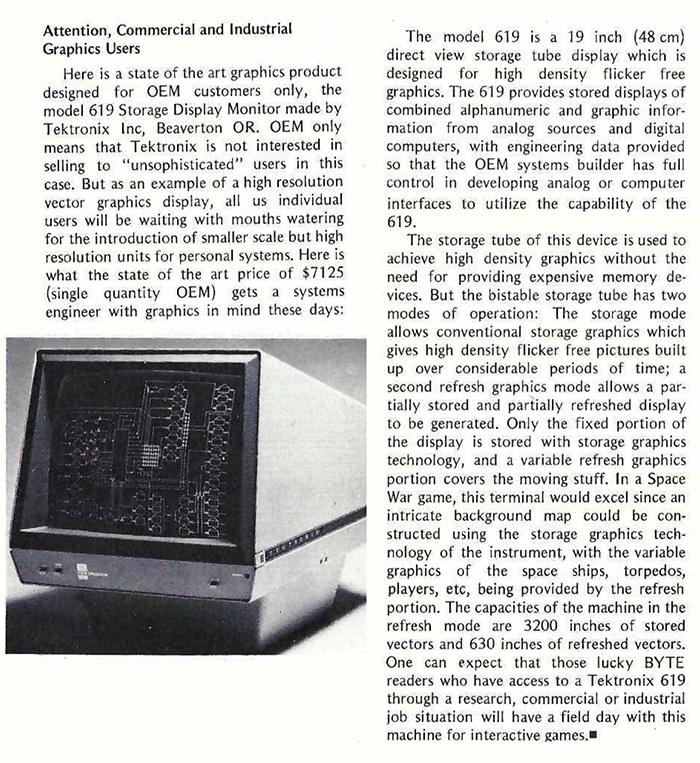
This January 21, 1978 TekWeek article features Tektronix as a leading supplier of computer graphics. Click on the image to view the PDF.
This Information Display Products organization chart is from 1978. Click on the image to view the PDF.
This timeline shows the breadth and depth of the Information Display products released from 1966 to 1979. Click on the image to view the PDF.
This April 1980 issue of Field Engineering News has a nice write-up on IDD including an organizational chart. Click on the image to view the PDF.
This July 31, 1981 TekWeek features an interview with Jon Reed regarding IDD. Click on the image to view the PDF.
By the mid 1980s the name had changed to Information Display Group (IDG). Here are some publications regarding IDD/IDG products.
The 4081 Interactive Graphics Display product was the world's first engineering workstation. It consisted of a 19" DVST display coupled to an Interdata minicomputer in a desk workstation. Sadly we think none exist today. The museum only has a 4081 front panel and the 19" monitor. This photo shows a complete 4081 system including an E size tablet, modem, plotter, tape drive, hard copy and line printer.
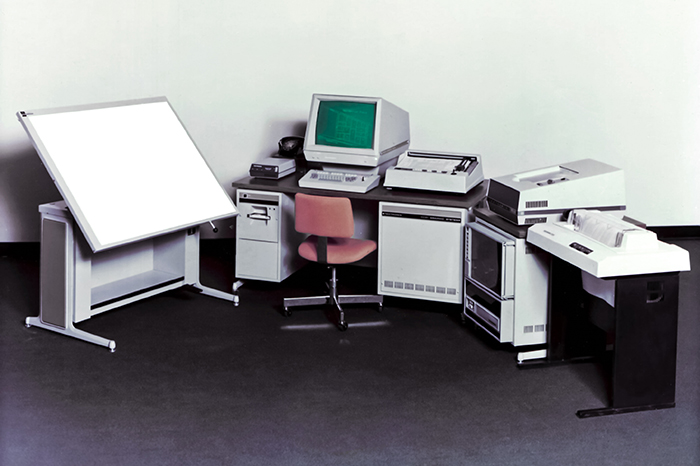
This cartoon represents the engineers who wrote the real-time graphics operating system for the 4081.

Sam Mallicoat created this cartoon of the 4081.
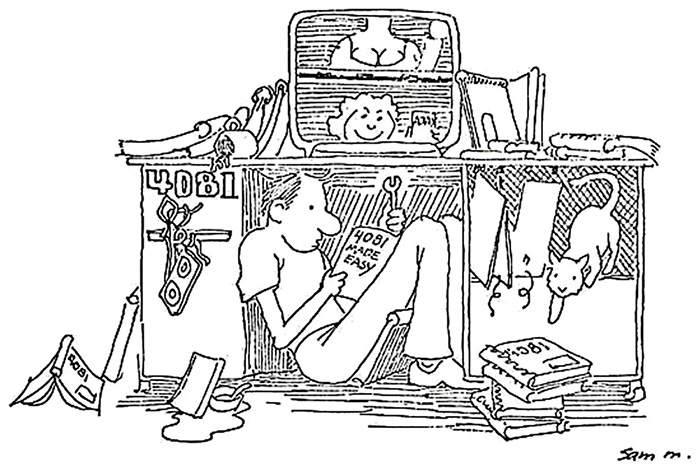
This 1976 Vol 8 No 4 Tekscope has an article describing the 4081 architecture. Click on the image to view the PDF.
This 1976 Tektronix 4081 Technical Report provides an insider's view of the operations of the 4081 as presented at SigGraph 1976 by Ned Thanhouser. Click on the image to view the PDF.
There is a nice write-up of the 4081 at the MATLAB Help Center [external link]
Plot-10 was advanced graphing software subroutines written in FORTRAN IV to provide high level device drivers for interfacing to the Tektronix 4010 family of graphic terminals. It was designed to meet the needs in a wide range of problems encountered in business, scientific, and engineering environments to generate a variety of common plots and specialized graphs. It was also the interface layer for other software products offered by Tektronix. This 1971 brochure describes the features and benefits of the Plot-10 software. Click on the image to open the PDF.
This 4014-1/4015-1 brochure was printed actual size. Click on the image to view the PDF.
This February 1973 APL brochure features the 4013 APL graphics terminal. Click on the image to view the PDF.
This 1975 4014 Application Note describes how to use 4014 advanced graphics for inner ear research. Click on the image to view the PDF.
This 1975 4014 Application Note describes how to use 4014 advanced graphics for structural design. Click on the image to view the PDF.
This July-August 1975 Tek Engineering News is a look ahead at where computing is going. This is a great read with predictions for the future. Click on the image to view the PDF.
This large format 1978 brochure promotes Tektronix as the best graphics solution in the industry. Click on the image to view the PDF.
This 1979 datasheet features the 4012/13 terminals. The 4012 added lower case fonts and the 4013 added the APL character set. Click on the image to view the PDF.
Tektronix also developed a ruggedized version of the 4012 for military applications, the RE4012. This single rack-mount terminal has as one of its design goals to fit through the hatches of a submarine. Click on the images to view the PDFs.
This 1980 ad features a testimonial from the Sperry Corporation on the value of Tek Graphics and the 4016-1 25" DVST terminal. Click on the image to view the PDF.
This May 17, 1981 TekWeek article features the 4112 and 4114 intelligent graphic terminals. Click on the image to view the PDF.
This IDD newsletter is from August 4, 1982. Click on the image to view the PDF.
Tekniques was an application newsletter for IDD graphic products. This particular issue from Fall of 1982 has articles on the 4010, 4020, 4050, and 4110 series of graphic terminals as well as options and other peripherals. Click on the image to view the PDF.
The 4100 series was an intelligent family of terminals introduced in 1981 that added segment capability to Tek Graphics. They would fully emulate the 4010/4014 family. Segments allowed you to define a graphic object or string and display it. Rather than going back to the host to redraw, you could change the viewport to zoom and pan and it would do so from the stored data. The 4114 was a DVST and the other initial members in the family were the 4012 mono raster, 4013 color raster, and 4115 high resolution color with auto convergence. They had some 3D models as well.
This July 1981 ad is for the 4112. Click on the image to view the PDF.
This December 4, 1981 TekWeek features the introduction of the 4113. Click on the image to view the PDF.
This December 4, 1981 TekWeek features an article on the 4113. Click on the image to view the PDF.
This 1982 ad is for the 4113. Click on the image to view the PDF.
This 1982 brochure is for the 4113 and its unique color features. Click on the image to view the PDF.
This March 12, 1982 TekWeek features the 4113 project team. Click on the image to view the PDF.
This October 1982 ad features both raster and DVST terminals. Click on the image to view the PDF.
This image appeared in an October 1982 brochure and shows the breadth of the storage and raster products.
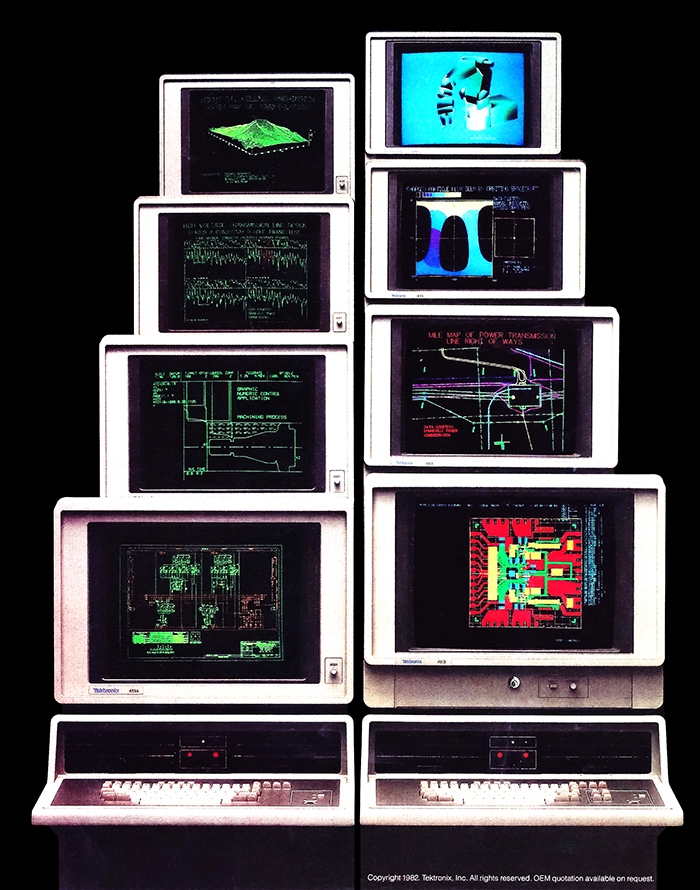
This December 1982 is another ad for the 4112. Click on the image to view the PDF.
As the 401X and 411X family of DVST graphic terminals was winding down, and color displays and dynamic RAM prices were dropping, Tektronix chose to enter the low cost color terminal market with raster scan terminal terminals. The 4105/7/9 aka Unicorn, and the follow-on 4205/7/9 have their own page. Click on the image to go to that page.
Tekniques also published papers on color. This Effective Use of Color paper is from the Winter 1983 issue. Click on the image to view the PDF.
This Effective Use of Color paper is from the Summer 1984 issue. Click on the image to view the PDF.
Initially printers were captive and only supported Tektronix terminals and displays. The first printers were 3M dry silver paper which was a photographic and thermal process. This November 1980 brochure describes two printers supporting DVST terminals. Click on the image to view the PDF.
This November 1980 brochure describes three printers supporting video displays. Click on the image to view the PDF.
Printers began to expand their market by focusing on the broader terminal market. This October 1982 brochure describes the 4612 printer supporting DEC terminals. Click on the image to view the PDF.
The 4111 color graphics terminal was introduced in 1985. It fit a very nice price/performance point in the market.

This datasheet describes the key features. Click on the image to view the PDF.
This brochure describes even more detail. Click on the image to view the PDF.
The 4111 won the Digital Review Target Award for Best Graphics IO Device.

Here is a scan of a tablet of paper with a very light washout of a graphic showing the price performance range of the Tektronix graphic terminals. We believe this pad is from 1988 as the 4209 was introduced by then and the 4211, replacing the 4111, was introduced the following year. Monarch, at the bottom was the IBM PC add-in card for Tek graphics.
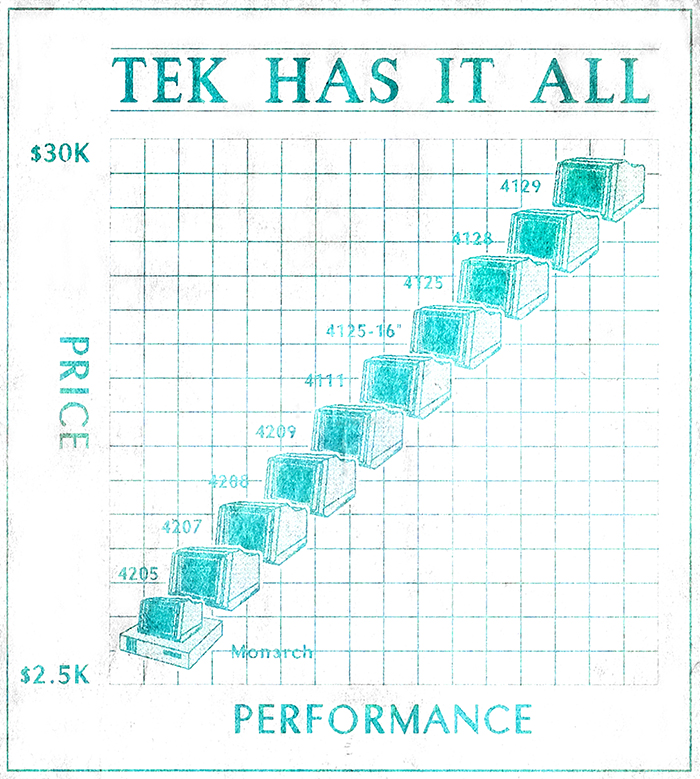
Eventually the name of the division was changed to Interactive Technologies Division (ITD). There is a Spectrum 87 film in our Video Gallery that is a preview of 1987 interactive graphic products. 1987 was a big year for product introductions.
There are more photos and information on our DVST Graphic Terminals page, our 4051 Graphic Desktop Systems page, and our 4100 / 4200 Series Graphic Terminals page.

